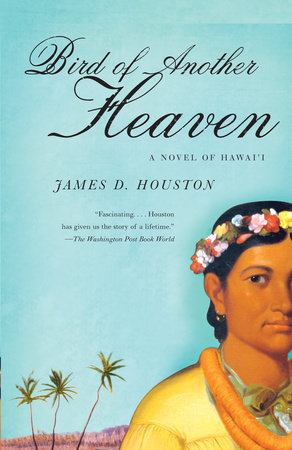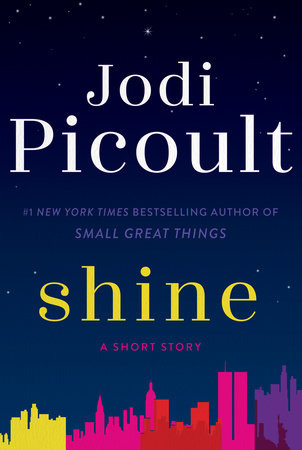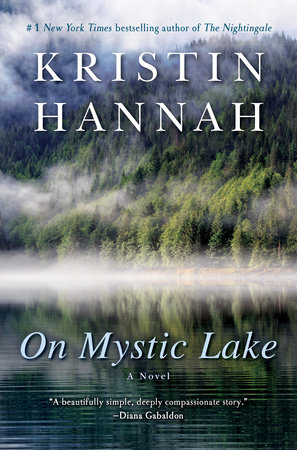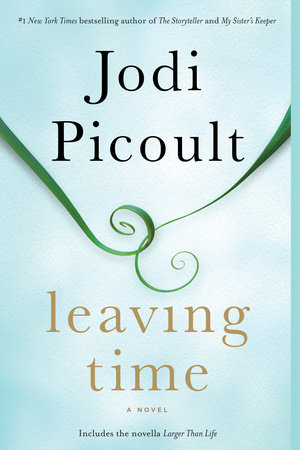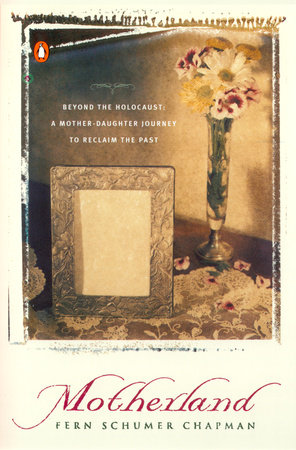Q: For the second time, you’ve written a novel that reaches in to the past . What relevance does historical fiction have for contemporary readers?
A: Reading historical fiction doesn’t necessarily mean you have to leave the modern world. The story itself may be set a hundred or two hundred years ago, yet still have a contemporary resonance. I think it’s a matter of perspective, the authorial perspective that is brought to the telling. In BIRD OF ANOTHER HEAVEN the narrator, Sheridan Brody, is a Bay Area talk show host and one-time student of anthropology. He is in his 30s before he discovers a previously unknown branch of his family tree, discovers an ethnic background his parents never talked about, discovers he’s the great-grandson of a woman who was half California Indian and half Hawaiian. Seeking out the truth of her life puts Sheridan’s own life to the test. At the same time this quest brings the late 19th century into the late 20th century.
It’s another example of something I find in a lot of narratives, whether short or long: in order to get the story told, you have to tell two stories. The second story comes rising up next to the first, or sometimes comes rising up inside the first. One is played against the other, one voice against another, one ethnicity against another, one century against another. And it’s the two together that make the story whole.
Time and time again Sheridan sees how the past illuminates the present, in his personal life as well as in the flow of national and international events.
Q: Nani Keala (aka Nancy Callahan) was an extra ordinary woman for her time. Where did her story come from?
A: It goes back to the days when I was researching SNOW MOUNTAIN PASSAGE, about the Donner Party and that early period of western settlement, from the late 1840s onward. I kept coming across references to the Hawaiian sailors who’d helped John Sutter build his legendary fort in the Sacramento Valley. Years before The Gold Rush, Sutter’s Fort had become world-famous as a first destination and resting place for the pioneering, trans-continental wagon trains. And John Sutter, for better or for worse, would be come known as ‘The Father of California.’ I’d already written a good bit about Hawai’i. I became fascinated with the idea that when those early wagon parties were making their way west through the Sierra Nevada’s, the Hawaiians were already here. They’d already played a significant role in laying the groundwork for what be came the state’s capitol city, Sacramento. And California was already becoming a cultural crossroads, settled by Mexicans moving up from the south, with Chinese and Hawaiians coming across from the Pacific side, and the natives tribes who’d been here for several thousand years. Then, through, some oral interviews from forty years ago and various other sources I happened on the story of a mixed-blood woman, the daughter of one of Sutter’s Hawaiians. Born in a tribal village in the Sierra foothills, she may have had a relationship with the last king of Hawai’i, David Kalakaua, may have traveled with him, may have been with him when he died in The Palace Hotel in San Francisco in 1891. After SNOW MOUNTAIN PASSAGE I thought I’d had enough history for a while. But this story wouldn’t leave me alone.
Q: Was this a true story? An apocryphal story?
A: It turned out to be a little of both. But for me, as a writer, it had compelling possibilities, linked, as it was, to the final years of the Hawaiian monarchy. Here was a multi-lingual, multi-cultural woman of the late 19th century whose adventurous life seemed to encompass two seemingly disparate realms. I think that’ s what drew me ever deep into the material – a singular woman, an enigmatic king, the chance to explore, in one narrative, a formative era in two parts of the world that have for so long intrigued me, my home region, California, and my second home, Hawai’i.
Q: Hawai’i is so much more than America’s vacation paradise. Yet most visitors don’t seem to give much thought to its social and political history. Should we?
A: A lot of people still see Hawai’i as it has been advertised around the globe – as The Paradise of The Pacific. And without doubt – for surfers, yachtsmen, sport fishermen, cyclists and divers and hikers and golfers – it’s one of the world’s great re creation zones. I have surfed those waves myself and hiked many of the beaches and crater-country trails and skirted Diamond Head in a catamarran. In that balmy and seductive air it’s easy to turn a blind eye to a very complex and influential political history that shines a special light on America’s history. It was the fate of native Hawaiians to inhabit a remote island chain that the larger world simply couldn’t stay away from, perfectly located to be come a mid-ocean hub
for travel, trade and shipping, as well as a centerpie ce for our military presence in the Pacific. For Hawaiians it has meant a profound struggle for cultural definition and survival, going on now for two centuries and more. The flashpoint was the overthrow of their monarchy in 1893, the year John Stevens, U.S. Minister to Hawai’i, said in a letter to the Secretary of State, "The Hawaiian pear is now fully ripe and
this is the golden hour for the United States to pluck it." That’s the backdrop for the love story which is at the center of this novel – the politics of a very volatile era. The overthrow, by the way, has been called America’s first exercise in regime change.
Q: What was your most surprising discovery while researching BIRD OF ANOTHER HEAVEN ?
A: How much important information has been destroyed or has disappeared. For instance, records from the Palace Hotel from the days before and after King Kalakaua di ed there in January 1891 – everything was lost in the San Francisco earthquake and fire of 1906. And the voice recording he made at the hotel on an early Edison machine, just four days before he died – we still have the wax cylinder, in a climate controlled room in a museum in Honolulu, but the sound of his words has been eaten away by time. And then there were hundreds of documents belonging to the king, letters and manuscripts and personal papers which disappeared after the overthrow and the ransacking of the royal palace. For a historian, bent on nailing down every fact, these can be hard losses. But for the novelist with a story to tell, it can be a hidden blessing. I mean, missing evidence can sometimes provide a welcome bit of wiggle room.
Q: What is next ? What are you working on now?
A: I recently finished pulling together a collection of my shorter prose pieces, some fiction, mostly nonfiction, and that will be coming out in the spring of 2008. Now I’m laying the groundwork for another novel, though it’s too soon to say much about it. I’m still in that stage of discovery Wright Morris refers to when he says writing is finding out what you don’t yet know about what you know.
